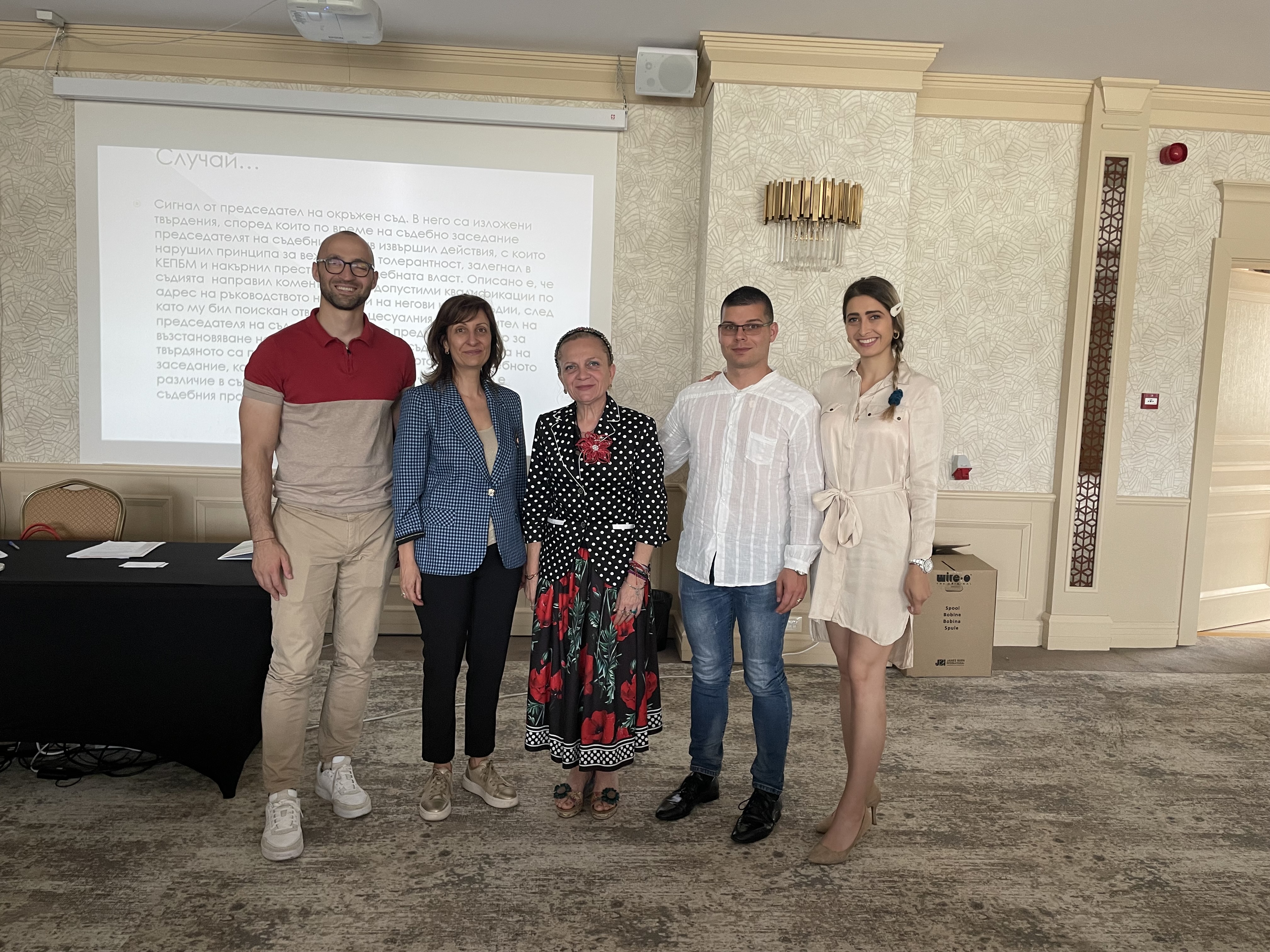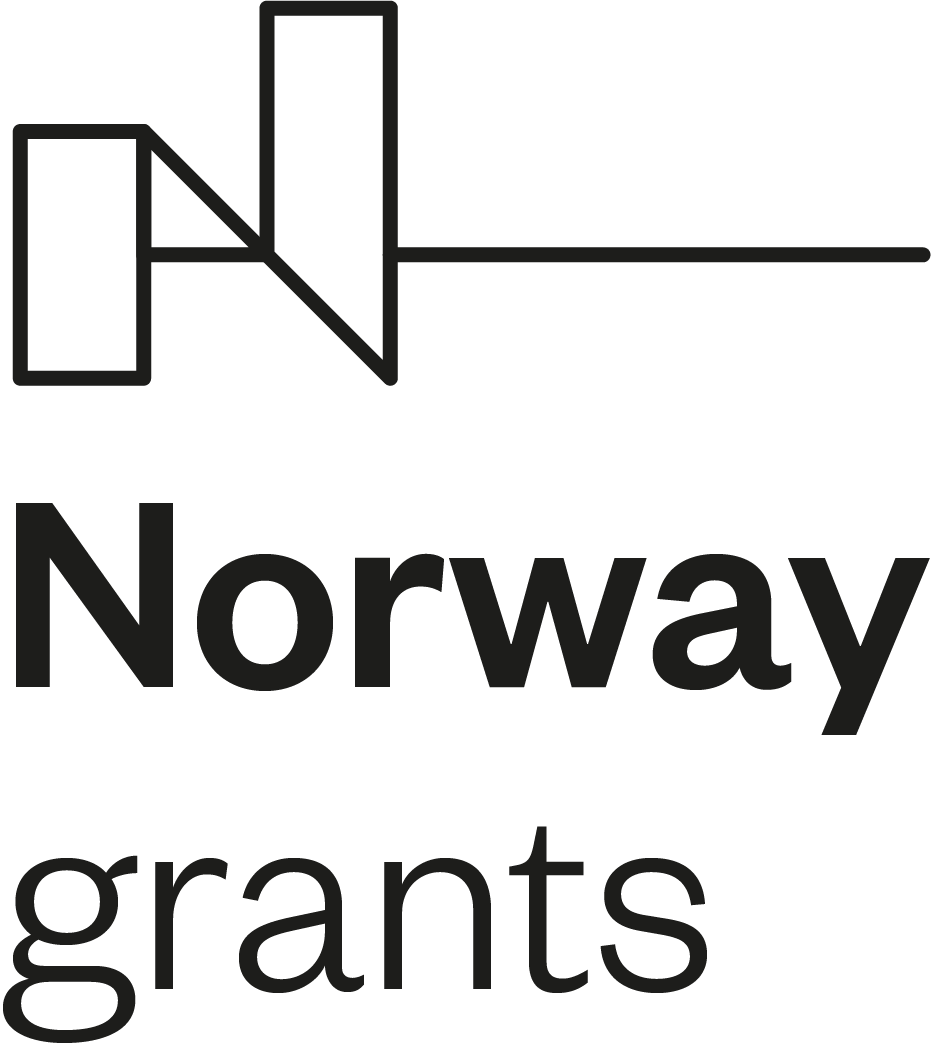Kalina Stancheva,
junior judge in Sofia City Court
“The criterion of the morality of the magistrate is the public interest” – this and many other important lessons were learned by the attendees at the organised by the National Institute of Justice (NIJ) and held in the period 20.6.2023 – 21.6.2023 face-to-face training for trainers on the topic “Judicial Behavior and Ethics”.
 The first day lecturer of the training was Judge Jeremy Cooper, an expert compiler of the United Nations Office on Drugs and Crime’s “Judicial Behavior and Ethics” Trainers’ Manual, who made a thorough analysis of the universal Bangalore Principles, gave participants the opportunity to analyse the scope of each principle and all external constraints for their implementation.
The first day lecturer of the training was Judge Jeremy Cooper, an expert compiler of the United Nations Office on Drugs and Crime’s “Judicial Behavior and Ethics” Trainers’ Manual, who made a thorough analysis of the universal Bangalore Principles, gave participants the opportunity to analyse the scope of each principle and all external constraints for their implementation.
After in-depth comments on the working cases and heated discussions, it was concluded that modern life requires us to update the principles created in the distant 2001 and adopted a year later in Bangalore, which undoubtedly form the basis for building an ethical framework, a model of honest and decent behavior of a magistrate.
A lecturer in the training was also Judge Rositsa Toncheva from Varna Court of Appeal. During the course of her presentation, the legal framework of the ethical rules and patterns of conduct required by each Bulgarian magistrate was noted. The subject of the discussion was the Code of Ethics of the Bulgarian Magistrates (ECBM) and its basic ethical norms. For a more comprehensive study on the attention, the attention of the attendees of the training was presented an analysis of the practice of the Inspectorate of the Supreme Judicial Council on cases of disciplinary offences.
 The audience was fascinated by the way by the way Judge Toncheva managed to convey the ethical aspects and the importance of the written and oral form of communication between magistrates, on the one hand, and magistrates and the public, on the other. Communication has emerged as an outstanding theme in terms of presenting the judiciary and strengthening the public’s trust in its work; attention has been drawn to how quickly information is disseminated today, since if, at the beginning of the 20th century, it took just as much time to process the information generated in a year, this process now requires only about 3-4 minutes. The latter led each of the attendees to think about what imprint we leave as magistrates for future generations, who will undoubtedly live in a much hectic everyday life, even than us.
The audience was fascinated by the way by the way Judge Toncheva managed to convey the ethical aspects and the importance of the written and oral form of communication between magistrates, on the one hand, and magistrates and the public, on the other. Communication has emerged as an outstanding theme in terms of presenting the judiciary and strengthening the public’s trust in its work; attention has been drawn to how quickly information is disseminated today, since if, at the beginning of the 20th century, it took just as much time to process the information generated in a year, this process now requires only about 3-4 minutes. The latter led each of the attendees to think about what imprint we leave as magistrates for future generations, who will undoubtedly live in a much hectic everyday life, even than us.
The phenomenon of the burn out effect, or the effect of burnout caused by the nature and volume of work, was also highlighted. It was emphasised in the course of Judge Toncheva’s presentation that the magistracy should begin to speak more often and claim the provision of resources for the treatment of the injuries that the nature of the work process causes, with a view to achieving a better quality administration of justice in the country, which undoubtedly everyone is striving for.
The active participation of the attendees, the sincere dialogue and the proposals for dealing with the negative phenomena in the judicial system outlined the future opportunities for the development of an expert environment in training in judicial ethics and professional behavior.
“


